
Senior writer Tina Hesman Saey is a geneticist-turned-science writer who covers all things microscopic and a few too big to be viewed under a microscope. She is an honors graduate of the University of Nebraska-Lincoln where she did research on tobacco plants and ethanol-producing bacteria. She spent a year as a Fulbright scholar at the Georg-August University in Göttingen, Germany, studying microbiology and traveling. Her work on how yeast turn on and off one gene earned her a Ph.D. in molecular genetics at Washington University in St. Louis. Tina then rounded out her degree collection with a master’s in science journalism from Boston University. She interned at the Dallas Morning News and Science News before returning to St. Louis to cover biotechnology, genetics and medical science for the St. Louis Post-Dispatch. After a seven year stint as a newspaper reporter, she returned to Science News. Her work has been honored by the National Academies of Sciences, Engineering and Medicine, the Endocrine Society, the Genetics Society of America and by journalism organizations.

Trustworthy journalism comes at a price.
Scientists and journalists share a core belief in questioning, observing and verifying to reach the truth. Science News reports on crucial research and discovery across science disciplines. We need your financial support to make it happen – every contribution makes a difference.
All Stories by Tina Hesman Saey
-
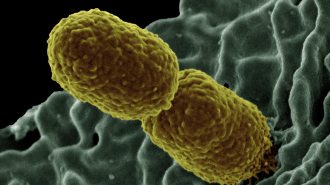 Humans
HumansAlcohol-producing bacteria could cause liver disease in some people
A majority of patients with nonalcoholic fatty liver disease also had gut bacteria churning out medium to high levels of ethanol.
-
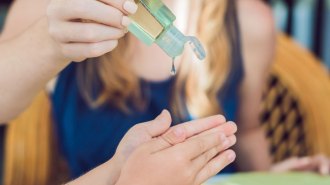 Health & Medicine
Health & MedicineMucus prevents hand sanitizers from quickly killing the flu
Flu viruses can hold out for minutes against ethanol when encased in wet mucus.
-
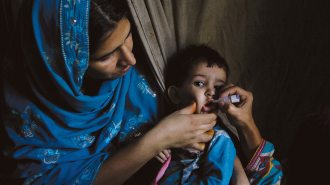 Health & Medicine
Health & Medicine50 years ago, polio was still circulating in the United States
The world has never been closer to eradicating polio, but the disease could come roaring back where vaccination is spotty.
-
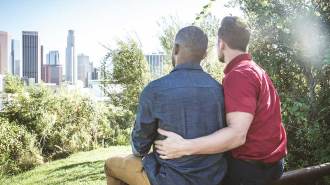 Genetics
GeneticsThere’s no evidence that a single ‘gay gene’ exists
Many genetic factors with small effects combine with one’s environment to influence sexual behavior, researchers say.
-
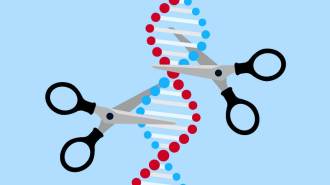 Life
LifeCRISPR enters its first human clinical trials
The gene editor will be used in lab dishes in cancer and blood disorder trials, and to directly edit a gene in human eyes in a blindness therapy test.
-
 Life
LifeWhy people with celiac disease suffer so soon after eating gluten
In people with celiac disease, some T cells release immune chemicals within hours of encountering gluten, triggering the fast onset of symptoms.
-
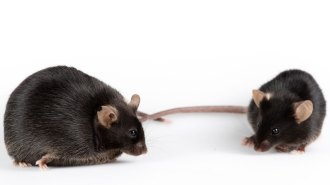 Life
LifeImmune system defects seem to contribute to obesity in mice
Subtle defects affecting T cells altered the animals’ microbiome and fat absorption, providing hints of what might also be going on in people.
-
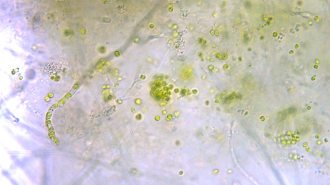 Life
LifeThis is the first fungus known to host complex algae inside its cells
In the lab, an alga and a fungus teamed up to exchange food, similar to lichens. But instead of staying outside, the alga moved into the fungal cells.
-
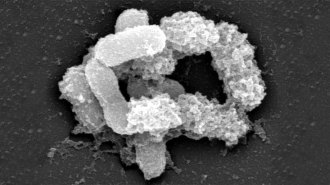 Neuroscience
NeuroscienceBoosting a gut bacterium helps mice fight an ALS-like disease
Gut bacteria may alter ALS symptoms for good or ill.
-
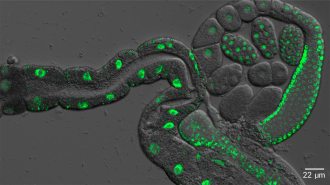 Genetics
GeneticsThis gene may help worms live longer, but not healthier
Antiaging therapies may have trade-offs, research on worms suggests.
-
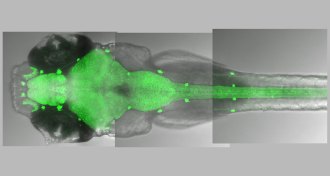 Neuroscience
NeuroscienceBoth fish and humans have REM-like sleep
Sleeping zebrafish have brain and body activity similar to snoozing mammals, suggesting that sleep evolved at least 450 million years ago.
-
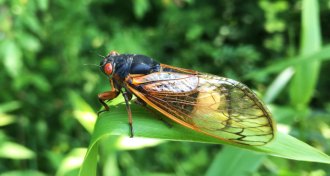 Life
LifeThese fungi drug cicadas with psilocybin or amphetamine to make them mate nonstop
Massospora fungi use a compound found in magic mushrooms or an amphetamine to drive infected cicadas to mate and mate and mate.